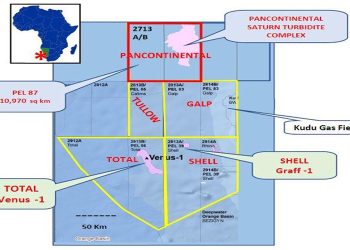
Namibia’s Ministry of Mines and Energy has urged for the strict adherence to the regulations for wholesale and retail fuel licences amidst a rise in the illegal sale of these licences.
This comes as the government department has observed a spike in wholesale and retail fuel licence sales and marketing of fuel at non-officially gazetted prices from unlicensed locations, a development which the Ministry of Mines and Energy has warned is illegal.
The Ministry has maintained that it remains the sole authority responsible for regulating the distribution of petroleum products, specifically petrol and diesel, within the petroleum downstream sector.
“This regulatory oversight is governed by the Petroleum Products and Energy Act of 1990, the Petroleum Products and Energy Amendment Act of 2000, and the Petroleum Products Regulations of 2000,” Ministry of Mines and Energy Acting Executive Director Bryan Eiseb said.
Eiseb clarified that selling fuel licences or certificates is illegal, as stated in the Petroleum Products Regulations Act of 2000, Regulation 29 (1) and (2), which explicitly states that “a licence or certificate is not transferable except by way of amendment under Regulation 30.”
According to him, “selling fuel (petrol and diesel) from an unlicensed outlet or without the requisite licence is strictly prohibited”.
In accordance with the regulations, he noted the Ministry may grant and issue licences and certificates for specific operational purposes.
These include the Fuel Retail Licence, which permits the “operation of a fuel retail outlet,” and the Fuel Wholesale Licence, authorising business operations as “a fuel wholesaler.”
Additionally, there is the Fuel Consumer Installation Certificate required for “commercial or industrial enterprises, legitimate farming activities, or mining operations”.
Highlighting the non-transferable nature of fuel wholesale licences, fuel retail licences, and fuel installation certificates, Eiseb says “as per Regulation 29(1)(2), they cannot be offered for sale”.
Regarding fuel pricing, encompassing petrol and diesel, Eiseb emphasised that the pricing of fuel is subject to regulatory control as outlined in the Petroleum Products and Energy Act of 1990.
He said these prices are regularly updated and officially published in monthly gazette releases.
Thus, the Ministry urges strict adherence to these regulations to maintain the integrity of the petroleum downstream sector.
This comes after Namibian fuel retailers challenged Mines and Energy Minister Tom Alweendo last year to implement comprehensive measures that allow the sector to return to profitability







